On this page:
- Two schools and their history
- The uniqueness of the schools
- Students
- Admissions
- Preparing for further education
- Language education
- Extracurricular activities
- Teachers
- Achievements
- Challenges

Two schools and their history
Our Kids: Are the two schools different?
Artur Stępniak: They are located in two different places. Also, the number of classes with various profiles differ. But both schools are very similar as far as their philosophy and methodology, as well as their mission and vision.
Our Kids: Did they both start at the same time?
Artur Stępniak: The Gaudeamus school in Bemowo is in its eighth year and the school in Józefosław in its 7th.
Our Kids: How did the idea to create the schools come about?
Artur Stępniak: It’s a result of over 20 years of work by the organization which runs them—Przedszkola Pomarańczowa Ciuchcia. For many years we specialized exclusively in preschools of which we now run 12. After many years of gaining experience with preschools, the board decided to open our elementary schools. Another contributing factor was the parents’ requests. Our idea is very coherent in terms of methodology and upbringing of children. So our elementary schools are a natural continuation of the preschools which we created first.
The uniqueness of the schools
Our Kids: In what way are your schools unique?
Artur Stępniak: Our motto which we have used since the very beginning is “Joy. Education. Passion.” This is what we try to instill in our students. We want our graduates to be people who are aware of their abilities and their development, who feel confident about their passions and how to develop them, and who know foreign languages at a level sufficient to continue their education anywhere in the world.
As far as bringing up our students, we subscribe to a trend called “positive discipline.” We try to motivate the students through positive stimuli and by showing them behaviour patterns which will have a positive influence on them.
As far as education is concerned, we believe in formative assessment. The way it works is that each child is treated individually and their marks are not just empty numbers but references to the level of development at which they’re at in specific periods of time. Very often they are descriptive in nature and show the students what they have been able to achieve and what they still need to work on. Formative assessment is a process which shows the progress of each of the students as they follow their development path.
Our Kids: Do you assign homework?
Artur Stępniak: In this respect, we subscribe to a movement called “assign homework that makes sense.” It’s a movement all across Poland, which every year is becoming increasingly important also in the public educational system. If homework is assigned at all, it’s always done in a meaningful way, so that it plays some role in the child’s development, rather than being just a repetition of what was done at school or doing what was not done at school. We never do that. Homework must be motivating and is usually assigned at higher grades because we want our graduates to know how they can study on their own. We also know that our students will have to do homework at later stages of their education, so they have to be prepared for that.
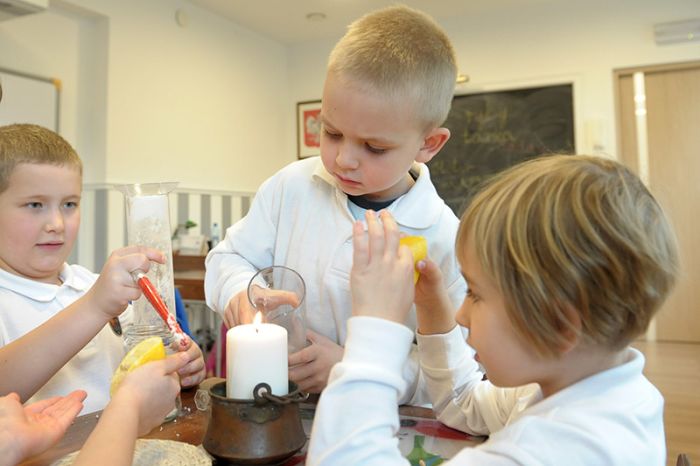
Students
Our Kids: Who are your students?
Artur Stępniak: We are a very mixed community, which we believe is our strength. We are not a stereotypical, closed uniform community. All children are welcome in our schools. Our students are not just the kids who live nearby. For instance, some students spend an hour or even more travelling to our school in Bemowo.
Our Kids: Are there many children who have gone through your preschool and are now in your elementary schools?
Artur Stępniak: Most of our elementary school students are children who have gone through our preschools, but every year we also admit children from other preschools.
Our Kids: Do you see a difference between the children who have gone through your preschools and those who come from outside?
Artur Stępniak: Yes, there is a considerable difference. When we deal with our preschool graduates, we can be sure of their knowledge and we know how they are prepared to begin their education at the elementary level, both in terms of general knowledge and the command of foreign languages, as well as their emotional and social development. We can clearly see in them the effects of our mission and vision which we implement in our preschools.
Admissions
Our Kids: What is your admissions process like?
Artur Stępniak: We do not conduct entrance tests. We believe it’s too early, and children at this stage should not be tested as a condition of their school admission. We are also open to collaborating with all parents, as long as we communicate openly and honestly to lead the children together along their academic and developmental path.
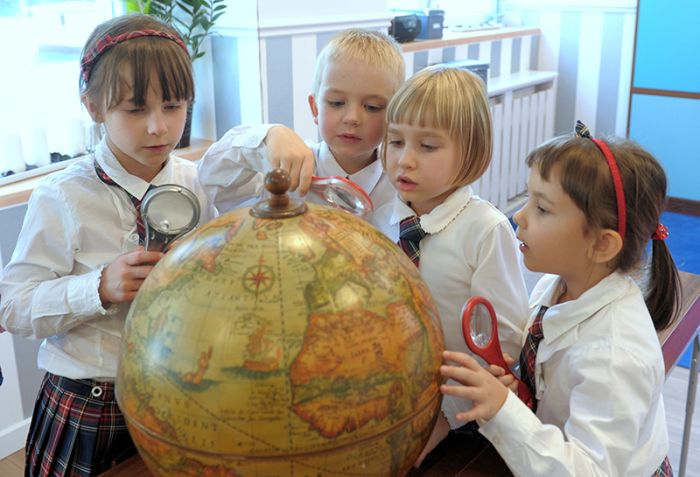
Preparing for further education
Our Kids: Although you have your own vision, children must obviously fulfill certain requirements imposed by the school, for example, taking the Grade 8 exams. Do you prepare students as well as other schools?
Artur Stępniak: A high level of education is inherent in our vision. On the one hand, we want to show how diverse and wonderful the world is, but at the same time, we need to prepare our students to be able to continue their education either in the Polish system or abroad. Their development as a whole person is important to us. We want them to be best prepared both in science subjects as well as in humanities and arts. We try to expand the core curriculum wherever it’s possible. What’s special about our schools is that we treat each student individually and we set the requirements just a bit over their present abilities, but in such a way that they can always fulfill them. What’s important is for the students to achieve success, because once they’ve achieved success, they’ll have an appetite for more. We prepare our students for education in high school.
Our Kids: Where do your graduates continue their education?
Artur Stępniak: We haven’t had any school graduates yet. This year is the first time that our graduates will leave our schools, and we will definitely carefully monitor their future paths, because we have known many of them since preschool, that is, for so many years
Our Kids: Do you also guide and advise your students where they should continue their education?
Artur Stępniak: We are not a large school, so we know the parents and students very well and we try to help each one of them to choose their next steps in education. We approach each student individually knowing their strengths and talents well. We try to develop them, at the same time showing them some next possible opportunities.
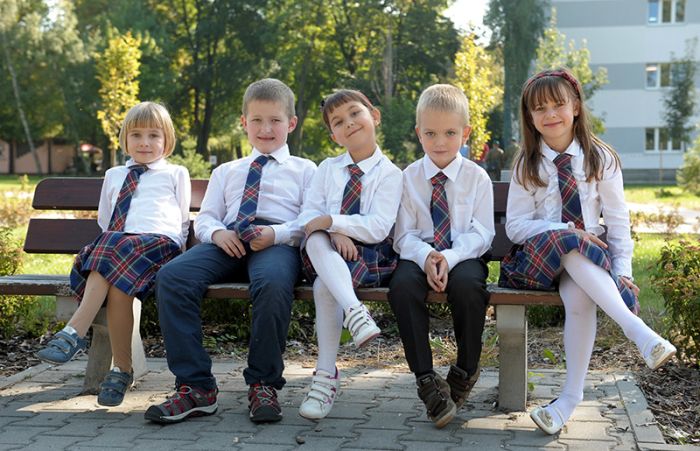
Language education
Our Kids: How does language education work in your schools?
Artur Stępniak: The first language in our school outside of Polish is English, and we make every effort not to call it a foreign language, because it is not a foreign language here. We teach it 5 to 10 hours a week depending on the class profile. In the first years of language education, we mostly focus on building motivation, self-confidence, and learning the language in a way that it’s not a foreign language to our students. We want it to be used naturally and frequently not just in the language class.
Our schools are open to international students. We have students who communicate in English better than in Polish, so communication in this language in our school is something very natural. Our teachers are also constantly developing their language skills by participating in courses in Poland and abroad. We focus on communication, but of course we also care for other language areas which will be particularly important in later stages of education, for instance, writing and reading comprehension.
Our Kids: English is not the only language taught in your schools, right?
Artur Stępniak: Of course not. The other language which we have chosen and which we teach from Grade 1 until Grade 8 is Spanish. It is also a language of everyday communication in our school. It’s one of the most popular languages in the world, relatively easy, melodious, and well integrated with the English language. It is taught for two hours a week throughout elementary school.
Extracurricular activities
Our Kids: What is your program of extracurricular activities?
Artur Stępniak: We have so many various options that students can choose from after class and in this way develop their interests. For example, English connected with the development of vocal skills—we sing in English and write our own lyrics. Every student can find something that will interest them: programming, history, nature, math—many great areas.
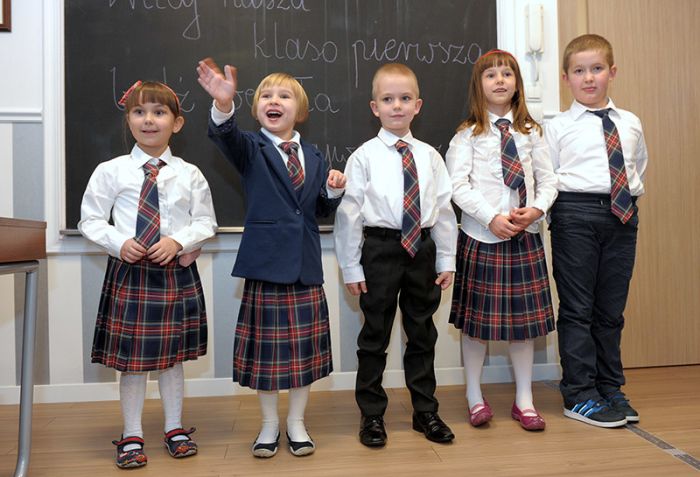
Teachers
Our Kids: Who teaches in your schools?
Artur Stępniak: All of our teachers have a great passion for this profession, feel great at school, like children, and want to collaborate with parents. They are highly professional, well-educated, and willing to change Polish education, which is possible in our schools.
Students with special needs, psychological support
Our Kids: You are one of the few schools which offer education for children with special needs.
Artur Stępniak: Yes, we do have a few classes with students with diagnosed special needs. These are classes whose character is adapted to the needs of the students. Those classes have a special needs counselor and the teacher on site every day. The students in those classes receive the necessary support in the form of various activities and therapy. We have such classes in each of our two locations.
We also run a Psychological-Pedagogical Clinic which offers help to students from our schools and preschools but is also available to outside. The clinic is at 35 Bajana Street, located in one of our preschools.
Achievements
Our Kids: What are you most proud of?
Artur Stępniak: We’re proud of our students who achieve lots of successes, e.g., winning the first or top prizes in Poland-wide competitions and olympiads of various sorts in languages, humanities, and maths. We have many students who are very gifted in sports—we have a great basketball team. Basketball is at such a high level in our school thanks to the passion of one of the teachers. We also have students who are very gifted musically and we win top prizes in English-language song competitions. We have students with very different talents which we help them discover and develop. We want everybody in our school to find their niche.
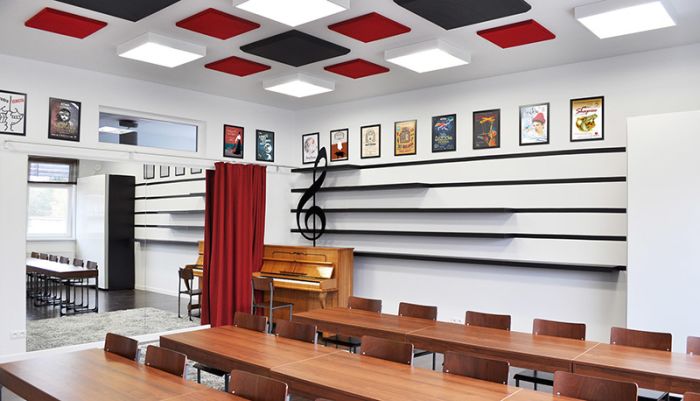
Challenges
Our Kids: Are there any difficulties, challenges?
Artur Stępniak: Our philosophy is that development and education are also about making mistakes, but it’s important to learn from these mistakes. So after they have made a mistake, we make every effort to help them rectify it in a positive way, while at the same time learning something. And avoid making the same mistake again in the future. We don’t have problems collaborating with students. Occasionally there are problems when our vision does not coincide with those of the parents.
Our Kids: Are the parents involved in the life of the school community?
Artur Stępniak: Yes, we have a very active parent council. Recently it organized a Christmas show for students in which the parents were the actors. It was a great experience and I’m sure there will be more such initiatives in the future. We have our own YouTube channel—there and on our website you can watch fragments of this show.
Parents are always invited to collaborate with the school and take part in our schools’ life. At present, our school in Bemowo has around 250 students and the other one about 120. These are not huge schools and thanks to that we can offer individual approaches to students. This provides the right environment for having dialogues with parents and getting to know them. A very important role is also played by the student council.
People who read this also viewed:
- Warsaw private schools
- Kraków private schools
- Poznań private schools
- Wrocław private schools
- Łódź private schools
- Rzeszów private schools
- Gdańsk & Gdynia private schools
-
Advice Guide
- ABC of educational terminology: Glossary of terms and concepts
- The admissions process
- Advantages and disadvantages of studying in an international school
- The application process
- Benefits of Polish private schools
- Bilingual schools
- Boarding schools
- Choosing a private or nonpublic school in Poland
- Compare schools in Poland
- English schools in Warsaw
- Homeschooling
- International schools in Kraków
- International schools
- Private school interviews
- Music education
- Myths about private education
- Non-public schools in Poland
- School open houses
- Our Kids Interview: Get to know EF Academy Oxford
- Our Kids Interview: Get to know Open School
- Our Kids interview: Get to know Regent College International Schools
- Our Kids Interview: Get to know The American School of Warsaw
- Our Kids Interview: Get to know The British School Warsaw
- Our Kids Interview: Get to know Wrocław Cosmopolitan School (two interviews, new video)
- Poland school profiles
- Private day schools
- Gifted schools & programs
- Private Jewish schools in Poland
- Language schools
- Private school tuition and costs in Poland
- Private schools in Poland
- Private schools in Poland offering French-language immersion
- English immersion schools
- Poland school uniforms
- Private special needs schools in Warsaw
- Public versus non-public schools in Poland
- Private school questions
- Private school rankings
- Reasons for choosing private schools - Our Kids’s survey report
- Religious schools
- Schools and classes for children with ADHD in Poland
- Social primary schools
- Social Schools
- Special educational needs (SPE) certificates
- Special needs schools
- Study abroad at a private school
- The first annual non-public school fair in Poland
- The first annual Our Kids non-public school expo in Warsaw was a great success
- Third Private School Expo in Warsaw - summary
- Types of schools
- Types of schools in Warsaw
- Warsaw preschool costs
- Why private school?
- Why parents go private
-
Grades
- Boarding high schools
- Choosing a high school in Poland
- Mokotow High School Campus - a new Warsaw high school and Thames British School campus
- Montessori nursery schools
- Montessori preschools
- Our Kids Interview: Get to know English Montessori School Katowice
- Our Kids Interview: Get to know FSA School
- Our Kids Interview: Get to know KIDS & Co.
- Our Kids Interview: Get to know Polish British Academy of Warsaw
- Our Kids Interview: Get to know The English Playhouse and The English Primary
- Poland education: grade levels
- Preschools in Warsaw
- Private & non-public preschools
- Private & non-public primary schools
- Private bilingual elementary schools in Warsaw
- Private high schools
- Private high schools in Warsaw
- Private middle schools
- Nursery schools
- Private primary schools in Warsaw
- Social high schools
-
Locations
- Boarding schools in Warsaw
- English schools in Kraków
- International Baccalaureate (IB) schools in Warsaw
- International schools in Warsaw
- Montessori schools in Warsaw
- Non-public schools in Warsaw
- Our Kids Interview: Get to know EF Academy
- Our Kids interview: Get to know Excellence in Education better
- Our Kids Interview: Get to know PRIMUS Non-Public Primary School No. 47 and Non-Public Secondary School
- Our Kids Interview: Get to know the Canadian School of Warsaw
- Our Kids Interview: Get to know The Primary and Secondary Schools of the Sisters of Nazareth in Warsaw
- Private Catholic and Christian schools in Warsaw
- Private day schools in Warsaw
- Private language schools in Warsaw
- Private schools in Bialystok
- Bydgoszcz schools
- Częstochowa schools
- Private schools in Gdańsk & Gdynia
- Katowice schools
- Private schools in Krakow
- Lublin schools
- Olsztyn schools
- Private schools in Poznań
- Private schools in Rzeszów
- Szczecin schools
- Private schools Warsaw
- Private schools in Wrocław
- Zielona Góra schools
- Private schools in Łódź






 POL
POL CAN
CAN